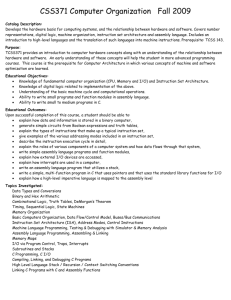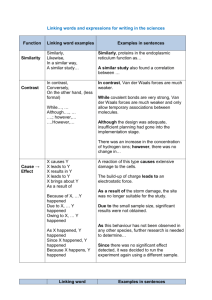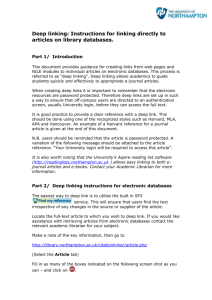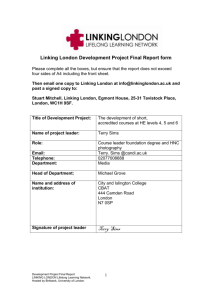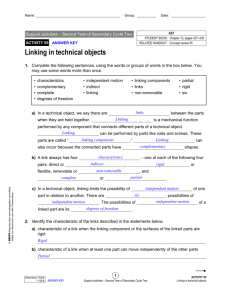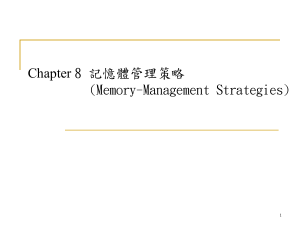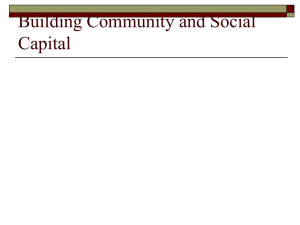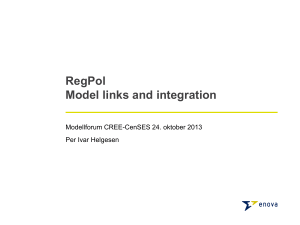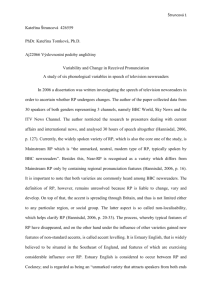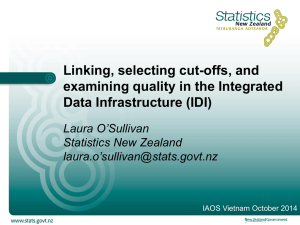9. Linking and Sharing
advertisement
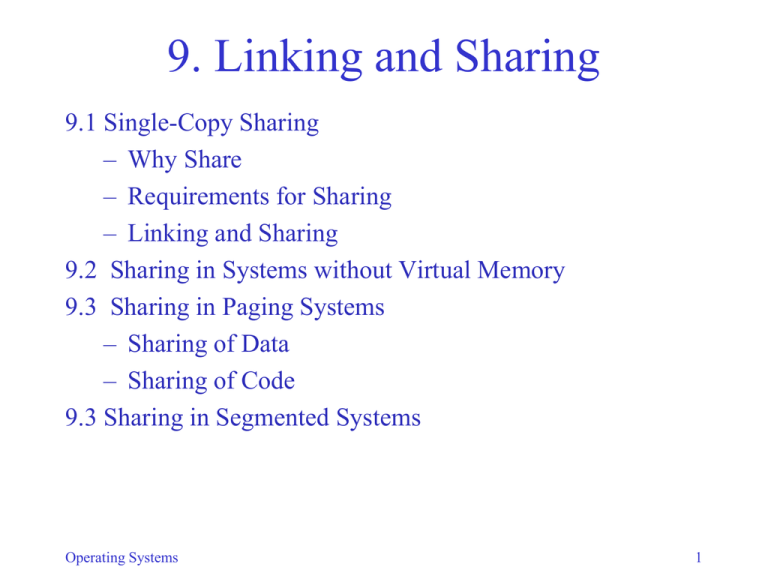
9. Linking and Sharing 9.1 Single-Copy Sharing – Why Share – Requirements for Sharing – Linking and Sharing 9.2 Sharing in Systems without Virtual Memory 9.3 Sharing in Paging Systems – Sharing of Data – Sharing of Code 9.3 Sharing in Segmented Systems Operating Systems 1 Single-Copy Sharing • Focus: sharing a single copy of code or data in memory • Why share? – Processes need to access common data • producer/consumer, task pools, file directories – Better utilization of memory • code, system tables, data bases Operating Systems 2 Linking and Sharing • Linking resolves external references • Sharing links the same copy of a module into two or more address spaces • Static linking/sharing: – Resolve references before execution starts • Dynamic linking/sharing: – While executing Operating Systems 3 Sharing without Virtual Memory • With one or no Relocation Register (RR) – All memory of a process is contiguous – Sharing user programs: • Possible only with 2 user programs by partial overlap • Too restrictive and difficult; generally not used – Sharing system components: • Components are assigned specific, agreed-upon starting positions • Linker resolves references to those locations Operating Systems 4 Sharing without Virtual Memory • With multiple RRs – CBR: Code Base Points to shared copy of code – SBR: Stack Base Points to private copy of stack – DBR: Data Base Points to private copy of data – Multiple processes can share code or data Operating Systems 5 Sharing in Paging Systems • Sharing of data pages: – PT entries of different processes point to same pages – If shared pages contain no addresses, linker can: • assign arbitrary page numbers to shared pages • record in PT – So shared data page can have a different page # in different processes – But address in shared page does not work Operating Systems 6 Sharing in Paging Systems • Sharing of code pages • Solution 1: assign the same page numbers to all shared pages – Restrictive • Solution 2: no page numbers in shared code – Compile self-references relative to CBR – Compile data/stack references relative to DBR/SBR – Limitation: shared code cannot contain any external references Operating Systems 7 Sharing of Code Pages in Paging Systems When to resolve external references (to shared pages)? • loader could check which shared pages are resident, adjust PT (e.g. n2) – too much overhead – many shared libs are never accessed • solution: defer linking until first access: – dynamic linking – using transfer vector Operating Systems 8 Dynamic Linking via Transfer Vector • One tv entry per shared module • Initially each entry contains only a stub • Stub does the following: – checks if referenced code is loaded – if not, it loads it – it then replaces itself by a branch to shared code • Next reference to the same code bypasses stub (simple indirect branch) Operating Systems 9 Sharing in Segmented Systems • Similar to paging • Data pages: assign any segment numbers • Code pages: – Assign same segment numbers in all STs, or – Use base registers for self/data/stack references • Limitation: no addresses in shared segments • But segments are logical entities—permit general solution: – Keep private linkage section (LS) for each segment – External references are in LS, not in code – Every process has its own copy of LS: • Can use different segment numbers – Introduced in Multics (1968) Operating Systems 10 Unrestricted Dynamic Linking/Sharing • Self-references resolved using CBR • Other references via addresses but kept in private LS – sharing is unrestricted (can use different page #s, shared segments can contain external references) • Linking/sharing is dynamic – External reference kept symbolic: (S,W), where S is a program name and W is a label, e.g. (HelloWorld, start) – At runtime, on first use: • (S,W) is resolved to (s,w), using trap mechanism • (s,w) is entered in linkage section of process – code is unchanged – Subsequent references use (s,w) without involving OS Operating Systems 11 Dynamic Linking/Sharing Before and After External Reference is Executed Operating Systems 12
